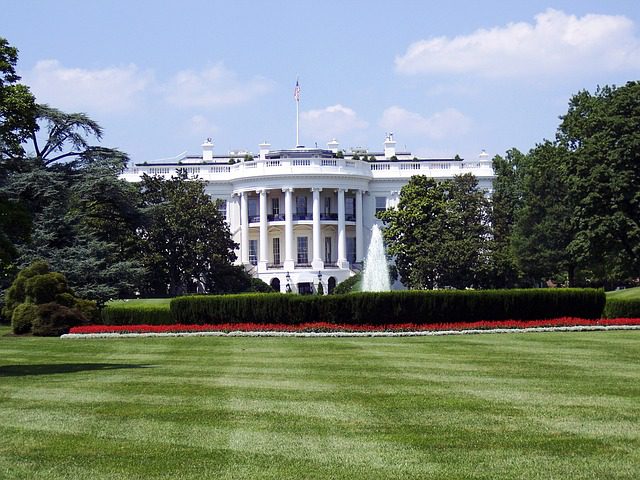
Dr. George C. Edwards III
By David R. Wheeler, Editor
George C. Edwards III, University Distinguished Professor of Political Science and Jordan Chair in Presidential Studies at Texas A&M University, will share his thoughts on the electoral college at a community conversation sponsored by the Merlin Law Group and Poynter on Thursday, April 13. The public is invited to the event.
Edwards, who has written or edited 26 books, is also the editor of the journal Presidential Studies Quarterly and is a Distinguished Fellow at the Rothermere American Institute at the University of Oxford in England. His latest book, Predicting the Presidency: The Potential of Persuasive Leadership, explains how the answers to certain questions about the context of a presidency can predict a president’s success.
From his office in College Station, Texas, Edwards answered some questions from AliveTampaBay about subjects such as growing up in St. Petersburg and dealing with the challenges facing traditional journalism.
AliveTampaBay: You grew up in St. Pete. Was your “high school self” exactly what we would expect of a world-renowned expert on the presidency? President of your senior class, president of the debate team, etc.? Or is your high school experience full of surprises for the people who didn’t know you back then?
George C. Edwards: I loved high school. At St. Pete High, I was very interested in politics and participated in debates, student council, and the like, but I was also was fond of athletics, dancing, and beach parties. I have no musical skills whatsoever, but I loved—and still love—music. You will not be surprised to learn that I was a reasonably serious student. I was fortunate enough to have a circle of friends who were fun and interesting, and I have enjoyed reconnecting with them in recent years.
ATB: The St. Petersburg Times (now the Tampa Bay Times) has always been a respected paper. Did growing up around the St. Petersburg Times help form your view of the function journalism is supposed to play in a democracy?
GCE: I pored over the St. Pete Times when I was growing up in St. Petersburg. I especially enjoyed the many columnists the paper carried. I cut out articles and filed them for later use in preparing for debates. Reading the Times carefully also gave me an appreciation for the role of the press in informing the electorate and keeping public officials honest. Who else could provide the information necessary for an informed judgment? Who else was going to investigate wrongdoing or dig into the execution of policy or the role of special interests? You simply cannot have democracy without a robust and free press.
ATB: When it comes to journalism’s problems today, do you think it’s a matter of (1) business disruption, or (2) a failure of the press to gain the support of the public? In other words, is it the internet’s fault for stealing all the advertising money away? Or is it the press’ fault for not fulfilling their duties properly?
GCE: This is a difficult era for traditional journalism. Part of the problem is the decrease in resources available to both the print and broadcast media. Part of the problem is the many alternatives now available to information consumers, fragmenting the market for news. And part of the problem is the form in which younger generations prefer to receive information. In addition, the fragmentation of journalism allows people to consume information with which they agree—and it allows news outlets to demonize other outlets with which they disagree. Partisan polarization both encourages a negative view of the mainstream press and is a product of such views.
ATB: Although some would say journalism is currently thriving in its reinvigorated position as underdog against the new administration, others would say it has a greatly diminished role to play in the age of social media and echo chambers. Can journalism, and specifically newspapers, thrive again? And in your opinion, what would that “thriving” look like?
GCE: There is no question that quality independent journalism is under siege. Partisans have an incentive to undermine its credibility, and they constantly attempt to do so. Partisan and social media is unlikely to be disinterested, and it is almost always very brief. It simply cannot replace newspapers, whether the papers are read in print or on a computer screen. I do not have a silver bullet for journalism, but there will always be a market for quality independent journalism, especially among opinion leaders and activists. There is a reason that the White House reads the New York Times, even if the current administration berates it daily.
ATB: Most smart, accomplished people never actually get around to writing a book. Those who DO write a book feel like the experience was unbelievably challenging. You’ve written or edited 26 books. How do you do it? What’s your writing process like?
GCE: Writing, especially writing nonfiction, is demanding. You are constrained by reality and you have to try to present complex matters clearly and in an interesting fashion. In my case, I first work on asking an interesting and important question. That is the real key, and it is difficult. Surprisingly, many key questions never get asked. Then, I spend several months thinking about ways of dealing with the question. In recent years I have used my time at Oxford for thinking and then return to the U.S. for the real writing. I spend a lot of time editing myself, sometimes writing the same paragraph many times. Despite the challenges—and frustrations—of writing, I find it a wonderful way to make a living.
ATB You’ll be talking in April at Poynter about the electoral college, but can you hit a few highlights from your last community conversation at Poynter?
GCE: I was the speaker at a community conversation at Poynter in December 2014. I was impressed that so many community leaders participated, and I enjoyed meeting them. I was also delighted that people stayed for informal conversation for an hour after the formal proceedings ended. Moreover, their question and comments were astute. Tampa Bay is an exceptional community.
ATB: Politics has always been a messy business in this country. For people who think this is the worst political season we’ve ever endured as a nation, what’s your response?
GCE: Since the days of George Washington, politics has always been messy and often unpleasant. The charges the Jeffersonians made against our first president would make your hair stand on end. And these allegations paled in comparison to the calumny Lincoln experienced. That said, partisan polarization has coarsened politics in the current era and made dialogue more difficult. People tend to dismiss those with different views by impugning their motives or by dismissing relevant expertise that counters their views. And they make the most egregious claims for themselves. I am dedicated to trying to overcome such barriers, but I am afraid I cannot claim success in my efforts. Nevertheless, I keep trying.
Interviews may be condensed and edited for brevity, clarity and style.


